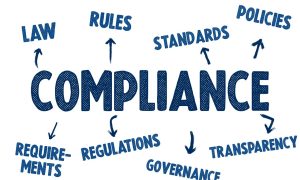Selling your business is likely one of the biggest financial decisions you’ll ever make. I’ve seen countless entrepreneurs struggle with this process. The journey isn’t simple. Many business owners focus solely on the selling price. This approach often leads to disappointment. A successful business sale requires careful planning and strategy. You need to consider multiple factors beyond just the final number. This article will guide you through the essential elements you should evaluate. We’ll examine everything from timing to team selection. Your business deserves the best possible exit strategy. Let’s explore how to create one that serves your goals and preserves your legacy.
The Team
Having the right team is crucial when preparing to sell your business. I cannot overstate this enough. Your team will make or break your sales experience. Start by finding a seasoned business broker who understands your business. They know how market dynamics work and can attract qualified buyers.
Then, employ a seasoned accountant with transactional experience. Your accountant will have financial records in tidy shape and make hard numbers simple for potential buyers to comprehend. They’ll help present your financial narrative in the most favorable light.
A lawyer who deals with business sales should also be included in your team. Lawyers prevent costly mistakes in your purchase agreement and other documents. They protect your interests during negotiations.
Try to use investment bankers if your business reaches some value thresholds. They have access to a greater number of potential buyers. Their networks contain higher-priced willing strategic buyers.
Finally, don’t discount the ability of a good financial advisor. They will guide you on how the sale ties in with your own individual financial objectives. Your team should be well-oiled so they can maximize your business value.
When to Sell

Timing your business sale properly can significantly impact your selling price. Market conditions constantly shift in every industry. Selling during an industry upswing often yields better results. The ideal moment arrives when your business shows strong growth potential.
Your personal readiness matters just as much as market timing. Ask yourself honestly if you’re emotionally prepared to let go. Many owners struggle with identity loss after selling their companies. Have you planned what comes next in your life?
Consider your business cycle when planning your exit. Buyers prefer companies with consistent or improving performance. Try to sell when your financial records show positive trends. Avoid entering the market after a disappointing year.
Economic factors also influence optimal selling times. Low interest rates make business loans more accessible to buyers. This environment typically creates more favorable conditions for sellers. Watch for signs of economic change before listing your business.
Industry consolidation waves present special opportunities. Large companies often pay premiums during acquisition sprees. Pay attention to industry trends and competitor sales. Sometimes, selling earlier than planned makes financial sense.
Communications Plan
A strategic communications plan protects confidentiality while maintaining business stability. I’ve seen sales collapse from premature information leaks. Your plan must balance transparency with necessary secrecy. Start by identifying key stakeholders who need information at different stages.
Employees deserve careful consideration in your communications strategy. They’ll inevitably sense something is happening. Prepare thoughtful answers for their questions. Your staff represents a valuable asset to potential buyers. Their confidence directly impacts your business value.
Suppliers and key customers require special attention in your communications plan. These relationships often worry buyers during acquisition talks. Consider timing disclosures to these groups carefully. A confidentiality agreement provides some protection during these conversations.
Social media and public communications need strict management during the sales process. Even subtle changes in messaging might trigger speculation. Develop prepared statements for various scenarios before they’re needed. This preparation prevents reactive communications that might damage value.
Your communications plan should extend beyond the sale announcement. Include transition messaging for the months following the transaction. Proper handoffs preserve customer loyalty and business continuity. These elements significantly influence your final selling price.
Housecleaning
Business housecleaning increases the value of your company and gets it ready for buyer scrutiny. Start by carefully classifying all financial documents. Clear and accurate financial statements covering a number of years are what buyers want. Clean books give people confidence and support higher prices.
After that, go over all legal documents to make sure they are up to date. Contracts with customers, suppliers, and employees are all included in this review. During the diligence process, missing or outdated documentation raises concerns. Time is saved, and value is preserved by fixing these problems prior to listing.
The Search for Meaning
Selling your business triggers profound questions about personal purpose and legacy. I’ve coached many entrepreneurs through this emotional journey. Success means different things to different business owners. Consider what matters most to you beyond financial gain.
Begin by reflecting on what you hope to accomplish through the sale. After employees depart, some business owners place a higher priority on their job security. Others concentrate on carrying out the goals of their business under the new management. Finding qualified buyers is made easier by being aware of these priorities.
Your business and personal identity are probably closely related. Be ready for the psychological effects of being apart. Unexpected feelings of loss are experienced by many former owners.
Developing interests outside your company before selling eases this transition.
Consider how you’ll measure success beyond the purchase price. Will you judge by customer continuity? Employee retention? Market expansion? Defining these metrics clarifies your ideal buyer profile. The right match often brings greater satisfaction than simply accepting the highest offer.
Legacy concerns frequently emerge during business exits. How will people remember your contribution? What impact will you have after you’re gone? Addressing these questions helps establish non-financial sale criteria. Sometimes, preserving your legacy justifies accepting a lower purchase price.
The Valuation
Accurate business valuation stands as perhaps the most critical element of your selling process. I recommend using multiple valuation methods for a comprehensive picture. Each approach offers different insights into your business’s worth. Start with the market-based valuation method, which compares similar businesses.
The income-based valuation examines your company’s earning potential. This method calculates value based on projected future profits. Buyers often place significant weight on these forward-looking assessments. Strong growth forecasts substantially increase your selling price.
Asset-based methods provide a valuation floor by tallying tangible and intangible assets. Physical equipment, real estate, and inventory form your tangible base. Intangible assets include customer relationships, brand recognition, and intellectual property. Both categories contribute significantly to your final valuation.
Industry-specific rules of thumb offer useful reference points. Different sectors use various metrics to estimate business value. Restaurant values might depend on seat counts. Manufacturing companies might calculate based on equipment replacement costs. Understanding your industry standards provides valuable negotiating context.
Remember that emotional factors influence valuation beyond pure mathematics. A strategic buyer might pay premium prices for competitive advantages. Ultimately, your business value equals what a qualified buyer is willing to pay.
Risks, Growth, and Positioning
The strategic positioning of risks and growth opportunities dramatically impacts buyer perception. I always advise clients to address risks directly. Hiding challenges inevitably backfires during due diligence. Instead, potential issues should be presented alongside mitigation strategies. This approach demonstrates management competence and builds trust.
Highlight sustainable growth opportunities that new owners can capture. Buyers pay premiums for realistic expansion potential. Document market trends supporting your growth forecasts. Provide evidence of untapped markets or underserved customer segments. These tangible opportunities justify higher valuations.
Your competitive edge deserves special emphasis during the selling process. Unique advantages create lasting value for new owners. Patent protection, exclusive territories, or proprietary technologies command premium prices. Detail how these advantages translate into financial performance.
Customer concentration requires careful positioning during sales discussions. High dependency on a few clients often concerns potential buyers. Show strategies for diversifying your customer base. Demonstrate the strength of key customer relationships through long-term contracts whenever possible.
The industry position relative to market trends significantly affects buyer interest. Companies aligned with growth sectors attract more attention. Explain how your business benefits from emerging industry developments. Position challenges as opportunities for buyers with additional resources.
What to Look for When Selling a Business?
Finding the right buyer involves more than accepting the highest offer. I encourage sellers to evaluate buyer qualifications thoroughly. Financial capability represents just the starting point. Verify that prospects have sufficient resources to complete the transaction. Request proof of funds or financing commitments early in discussions.
The buyer’s industry experience significantly impacts transition success. Experienced operators integrate acquisitions more smoothly than newcomers. This expertise often preserves more business value post-sale. Consider whether prospects truly understand your business model and market challenges.
What is the Most Common Mistake People Make When Selling Their Business?

Inadequate preparation consistently ranks as the costliest mistake in business sales. I’ve watched countless owners leave money on the table through hasty exits. Rushing the process typically leads to suboptimal outcomes. Proper preparation often requires two to three years before listing.
Emotional decision-making frequently undermines otherwise sound business transactions. Many owners accept low offers from buyers they like personally. Others reject fair proposals from purchasers they dislike. Separating emotions from business judgments protects your financial interests.
Overvaluation presents another common pitfall during the selling process. Unrealistic price expectations waste valuable time and resources. Market-based valuations provide objective reference points. Starting with reasonable asking prices attracts serious buyers and shortens sale timelines.
Neglecting tax implications costs sellers significant portions of their proceeds. Different sale structures create vastly different tax consequences. Consult with tax specialists before finalizing any agreement. Proper structuring can legally preserve millions in some transactions.
Confidentiality breaches damage more sales than almost any other factor. Premature disclosures alarm employees, customers, and competitors. These reactions can irreparably harm business value.
Conclusion
Selling your business requires careful consideration of multiple factors. Timing your sale strategically maximizes value in changing markets. Develop a comprehensive communications plan that maintains stability during transitions. Complete thorough business housecleaning before buyer inspections begin. Reflect on what success means beyond financial considerations.
Accurate valuation using multiple methods establishes realistic expectations. Position risks and growth opportunities honestly to build buyer confidence. Select purchasers based on capability, experience, and cultural fit. Avoid common mistakes like rushing the process or making emotional decisions.
ALSO READ: What is the Role of Trademarks in Building a Competitive Advantage?
FAQs
Most business sales take between six months and two years from preparation to closing.
Brokers typically justify their commission by bringing multiple qualified buyers and maintaining confidentiality.
Expect to provide 3-5 years of financial statements, tax returns, customer lists, contracts, and organizational charts.
Signed confidentiality agreements are required before sharing information, and blind profiles are used for initial marketing.
Asset sales transfer specific business components, while stock sales transfer ownership of the entire legal entity.
Verify financial capability, industry experience, and cultural compatibility through references and documentation.




